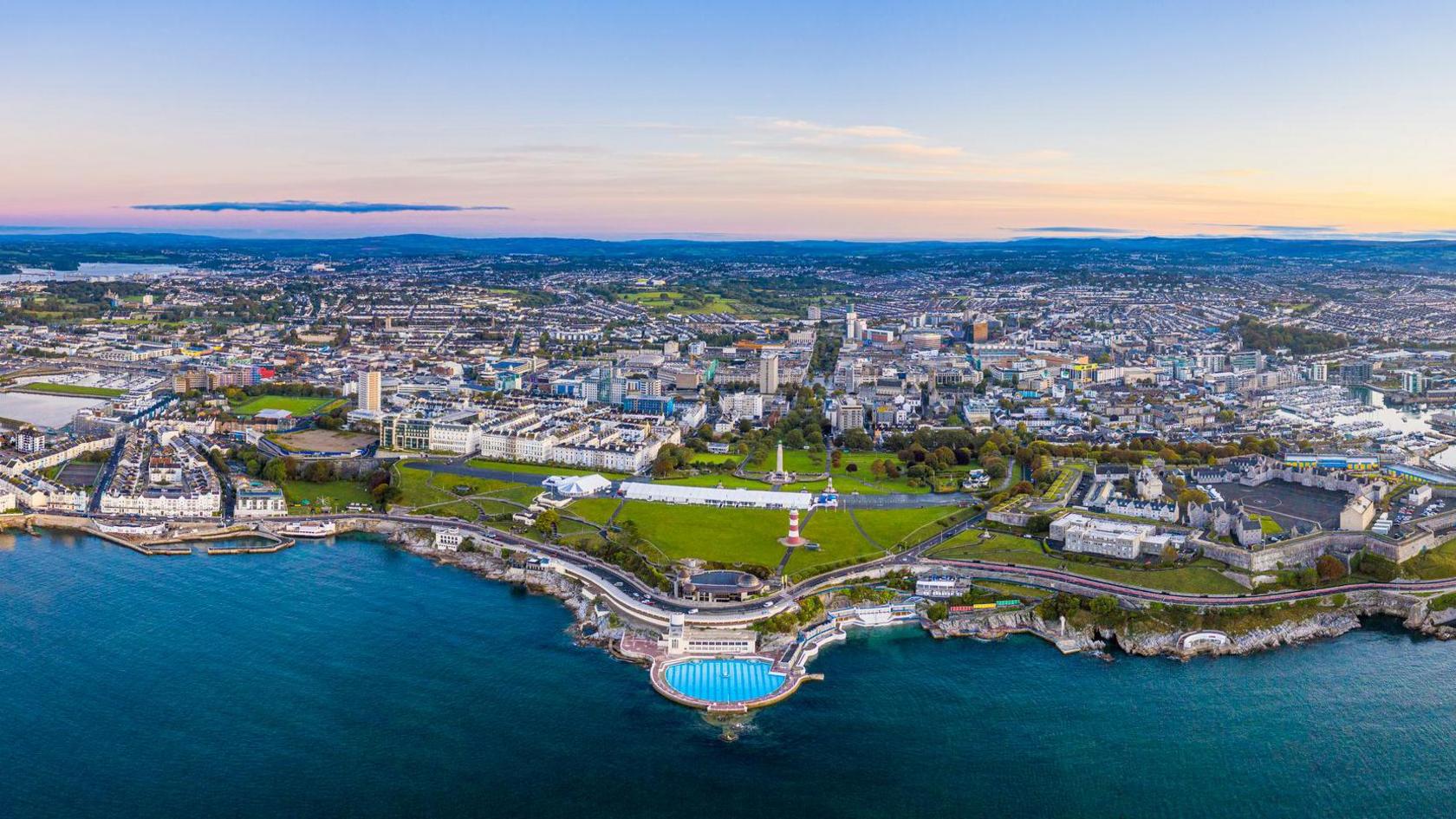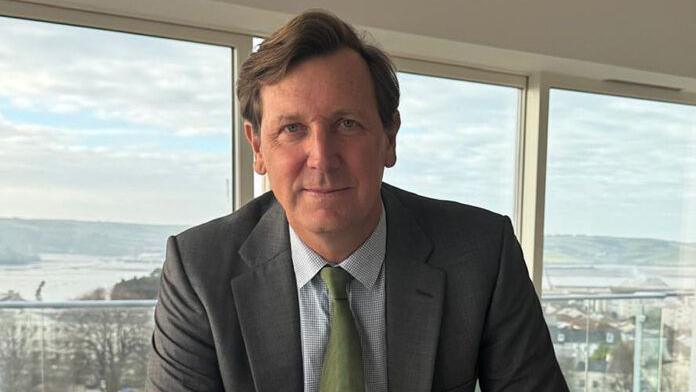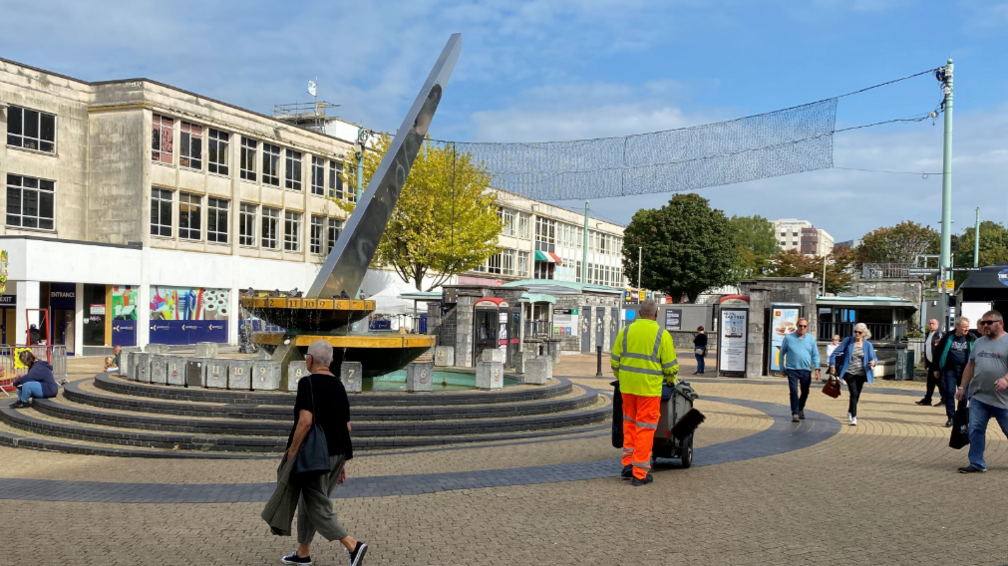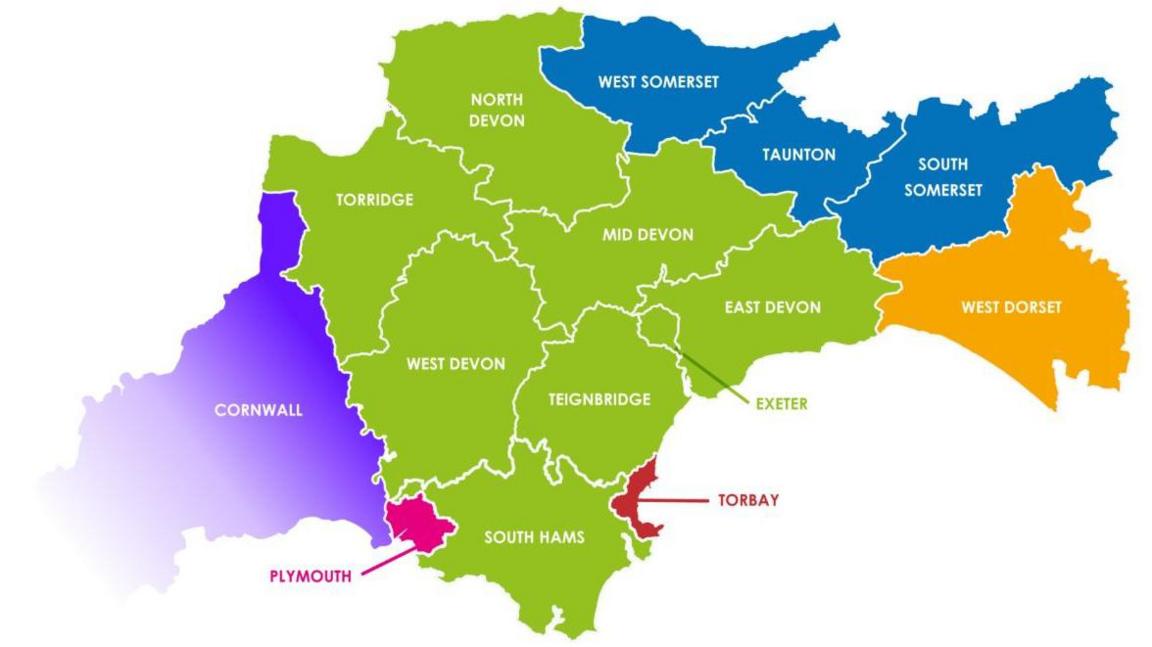Mayor for Plymouth: The case for and against

A referendum will be held in Plymouth over whether or not the city should have a directly-elected mayor
- Published
As Plymouth prepares to vote in a referendum to decide whether the city should have a directly-elected mayor, two arguments appear to dominate the debate. Depending on who you talk to, a directly-elected mayor could bring massive investment to the city or it will be a huge waste of money.
The man driving the campaign for a mayor for Plymouth - and footing the bill - is Angus Forbes, a millionaire Australian businessman married to former Strictly Come Dancing judge Darcey Bussell.
Labour councillor Charlotte Holloway, one of the co-organisers of the No campaign, said the city mayor model was a waste of money, outdated and had been tried and failed in other areas.
In the lead-up to the referendum, the government intervened, saying last month it would bring in legislation to stop the creation of any new city mayors, making the consequences of the vote on 17 July irrelevant, but that position was contested by the Yes campaign.

Angus Forbes is the Australian multi-millionaire businessman behind the Mayor for Plymouth campaign
Forbes said the city needed a figurehead who would be accountable for the fortunes of Plymouth and help the city achieve its enormous potential.
He said: "We've got to change this city, we've got to progress, we've got to have great leadership that people want. We want the city to be unified and have a vision and we need to alleviate poverty."
When asked how a change in governance would change anything, Forbes said: "You cannot underestimate the power of collective belief - when people actually choose their leader directly and get the person they absolutely believe in, the vision of what they see for the city, then everybody is galvanised."
The businessman said having a directly-elected mayor would mean "the power transfers to the people of Plymouth".
Forbes said he was "passionate about making space for great leadership" in Plymouth but would not be a mayoral candidate himself and was not aligned to any political party.
He would not be drawn on how much he had personally spent on promoting the referendum, saying that was "a private matter".
Forbes said the £410,000 being spent by Plymouth City Council on holding the referendum was an amount "not to be sniffed at" but said this was a "once-in-a-generation event" and "the price of democracy".

Charlotte Holloway, Labour councillor, says a directly-elected mayor for Plymouth would bring extra costs and no benefits
Charlotte Holloway, a spokesperson for the cross-party Plymouth Knows Better campaign against a directly-elected mayor for Plymouth, said the model was ineffective.
Throughout this debate campaigners on her side have said local authority mayors were on their way out and claimed the whole process of having a referendum was a waste of council money.
Holloway, a Labour member of Plymouth City Council, said: "The city mayor model is one that has been tried, tested and failed in city after city across the UK and in places like Bristol and Torbay just up the road.
"They tried it and they scrapped it and that's why the government themselves said back in December this was a model they were discontinuing."
'Janners really care'
The referendum also comes at a time when the government is overhauling local government across the country in plans which will see regional mayors in charge of several local authorities - as opposed to city mayors - introduced everywhere.
Holloway said: "Plymouth is a brilliant, fantastic city on the up but this city mayor model is on the way out and what we need to do in the city is draw a line under this sorry saga."
She said there were "always strong feelings in Plymouth" as "Janners really care about making our city better".
"Whatever happens on July 17 I want us all to come together and stay focussed on working together and making our city even more brilliant and overcoming some of those longer-term challenges that we've had," she said.
Government steps in
The referendum was triggered in February after more than 10,000 people in Plymouth signed a petition calling for it to happen.
The government stepped in towards the end of June with an announcement that no new city mayors would be created.
Local Government Minister Jim McMahon said the move was "of particular relevance to the Plymouth referendum" and any mayoral election would be moved from May 2026 to May 2027.
However, Forbes said Plymouth City Council would be obliged to make constitutional changes "almost instantly" in the event of a vote in favour of a directly-elected mayor in spite of the government announcement.
A city council spokesperson said "preparatory work" would take place if there was a Yes vote "to ensure the council is ready to implement the new governance model in time for the anticipated 2027 election".
"This will include reviewing and updating the council's constitution to reflect the mayor and cabinet structure - such as changes to the roles of scrutiny and oversight - unless or until legislation dictates otherwise," they said.
Follow BBC Devon on X, external, Facebook, external and Instagram, external. Send your story ideas to spotlight@bbc.co.uk, external.
Related topics
- Published28 April

- Published18 February

- Published28 February
